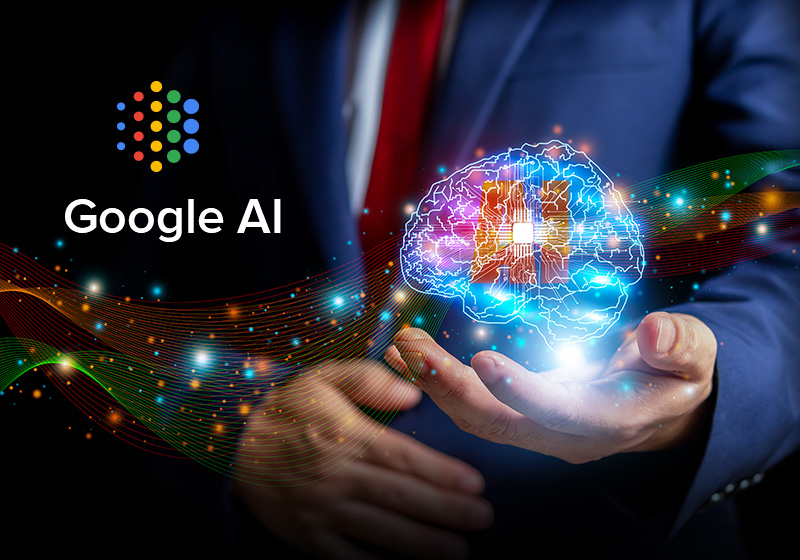How the Tech Giant is Redefining Itself
In the age of rapid technological evolution, even the biggest giants must innovate or risk falling behind. For Google, a company so synonymous with internet search that its name became a verb, the future is not just about helping people “Google” — it’s about Google Googling itself. But what does that really mean?
This phrase — “Google’s future is Google Googling” — reflects the growing shift within Google towards using its own vast artificial intelligence (AI) and machine learning capabilities to redefine what search is, how data is processed, and how the company reimagines itself for the next era.
In this blog, we’ll dive deep into this concept, exploring what it means for users, the internet, and the future of search.
🔍 The Search Engine That Rewrote the Rules
Google revolutionized the internet when it launched in 1998. Its PageRank algorithm fundamentally changed how web pages were indexed and ranked. The result? A cleaner, faster, and more relevant way to find information.
For over two decades, Google’s mission — to organize the world’s information and make it universally accessible and useful — has remained consistent. But the methods have changed dramatically.
The rise of AI, the popularity of voice assistants, and the explosion of platforms like TikTok and ChatGPT have challenged the dominance of traditional search. Google can no longer rely solely on blue links and keyword matching.
🤖 Google Using Google: AI-Driven Self-Improvement
The phrase “Google Googling” represents the company’s increasing reliance on its own tools, especially AI and deep learning, to power, improve, and reinvent its core services.
Here’s what that looks like in practice:
1. Search Powered by Generative AI
Google has already begun integrating AI-generated overviews into search results. With the launch of AI Overviews (previously known as the Search Generative Experience), Google now provides summarized answers that pull information from multiple web sources — eliminating the need for users to click through multiple links.
This is Google learning from itself — indexing the internet and then distilling that information using its own AI.
2. Gemini and Bard: Chat Becomes Search
Google’s chatbot, Gemini (formerly Bard), is their direct answer to AI-powered tools like ChatGPT. Gemini is integrated into Google Search, Gmail, Docs, Android phones, and more. This reflects Google’s belief that the future of search is conversational, context-aware, and multi-modal (text, voice, image, video).
By using Gemini internally and externally, Google is training its own AI to make Google better — essentially Googling Google in a feedback loop of improvement.
3. Indexing the World’s Knowledge with AI
Google’s systems now use AI not only to understand webpages but to understand intent, language, user behavior, and even video/audio content at scale. This allows Google to index and serve results not just from websites but from apps, podcasts, YouTube videos, and soon — virtual environments.
🧠 The Feedback Loop: Self-Teaching Systems
In AI, feedback loops are powerful. When a system improves itself using its own outputs as inputs, it becomes exponentially smarter.
Google has entered this phase:
- Google trains Gemini using its own Search data.
- Gemini enhances Search with better responses.
- Users interact with Search differently.
- Google uses that data to train Gemini further.
This self-learning ecosystem is Google “Googling” — feeding and refining itself continuously.
🌐 Beyond Search: Google Googling Across All Products
While search is at the core, Google’s “Googling” approach extends across its entire product line:
📱 Android:
Google uses Android user behavior to improve features like predictive typing, app suggestions, and battery optimization — all powered by AI.
🧑💼 Workspace (Docs, Sheets, Gmail):
Google’s smart compose, grammar suggestions, and meeting summaries are powered by AI trained on its own product data — improving productivity tools for billions.
🏠 Google Home & Assistant:
Voice interactions are processed and learned from to make responses more accurate, personalized, and intuitive.
📸 Google Photos:
Its AI uses facial recognition, scene detection, and even memory curation — learning how people interact with memories and organizing them better over time.
🧭 Ethical Considerations of Google Googling
While exciting, this self-enhancing model comes with questions and concerns:
- Privacy: As Google learns from user data, how much of it is anonymized and how much is personally identifiable?
- Monopoly of Knowledge: If Google summarizes the internet, do websites lose traffic? Do small publishers become invisible?
- Bias in AI: Google’s AI reflects the data it trains on — including any embedded societal biases. Self-reinforcing systems must be monitored.
Google has published AI Principles to ensure fairness, transparency, and safety, but enforcement and accountability are ongoing challenges.
🔮 What Does the Future Look Like?
The future of Google is likely to be less of a search engine and more of an answer engine, personal assistant, and intelligent guide.
Imagine this:
- You ask Google, “Plan a 5-day trip to Japan in March under ₹80,000,” and it gives you a full itinerary.
- You snap a photo of a machine part, and Google tells you where to buy it.
- You say “help me draft a legal contract,” and Google produces a template personalized for your situation.
All this will be possible because Google is not just crawling the web — it’s crawling its own knowledge, its users’ behaviors, and the ever-evolving AI models it’s building. It’s Google, Googling itself to be better.
📌 Conclusion: Reinventing the Giant
“Google’s future is Google Googling” is not just a catchy phrase — it’s a reality. It represents a world where Google is no longer just a passive indexer of the web but an active participant in understanding, creating, and delivering knowledge.
By using its own tools to improve its products, Google is in a unique position to shape the future of the internet, AI, and how billions of people interact with information.The question is not whether Google will stay relevant — it’s whether
we’re ready for the new Google that thinks for itself.
